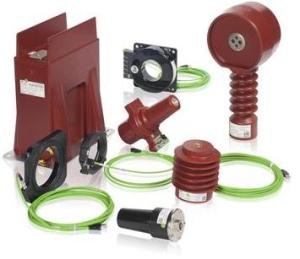Jun 5 2017
The pioneering technology leader, ABB, will present papers on the latest sensor technology. The sensors are an advanced solution for measuring currents and voltages, and a perfect solution to evolutionary market trends. The advance sensor measurement for smart grids will be showcased at stand G08, at CIRED, 2017, along with other ABB medium-voltage switchgear.
 Credit: ABB
Credit: ABB
ABB is showcasing its outstanding sensor technology within a digital switchgear solution and presents papers on this trending topic at CIRED 2017. Nowadays advanced sensors bring many benefits to customers seeking smart grid and digital switchgear solutions.
“ABB’s sensors enable equipment size reductions, improved performance, ease of installation and ease of system upgrades without unnecessary downtime,” said Bruno Melles, Managing Director of ABB’s medium voltage product business. “ABB introduced sensor technology in early 1990s as a successor to conventional instrument transformers, significantly reducing size, increasing safety, and providing greater rating standardization and a wider functionality range.”
The sensors are designed without making use of traditional ferromagnetic solutions, therefore they are immune to grid disturbances such as a ferroresonance. Thanks to their smaller dimensions, the sensors contain less insulation material, which reduces the risk of insulation degradation in an application. Moreover it increases the safety for operating personnel thanks to the error free connection between sensor and the protection relay.
Current and voltage sensors feature linear characteristics, so they can operate with a wide range of primary currents and voltages. To adapt switchgear according to the changing load currents, it is enough to modify the parameters of the protection relay. It saves on the specification of current and voltage transformer parameters, on installation time and on the future costs of switchgear downtime.
Since the sensor elements are particularly small and one sensor is used for both measurement and protection, current and voltage sensors can be integrated easily into switchgear as a retfrofit solution as well as in new switchgear applications, which reduces the footprint.
The development of ABB’s sensors started at the beginning of 90s and it is closely connected to the development of digital protection relays. The first group of sensors were produced and put into operation in 1993. Sensors operate under different principles to classical instrument transformers with magnetic cores. They were developed as an alternative solution for voltage and current measuring, with the objective to significantly decrease dimensions, improve operation safety, increase the level of parameter standardization, and to improve overall functional characteristics.
During the last few years, ABB has developed a variety of sensors to satisfy new requests from industries and utilities and the growing renewables business. With more than 17 product families and 56 different product variants we are able to satisfy applications from primary to secondary distribution air- and gas-insulated switchgear. With the latest released of KEVA C, ABB has strengthened its medium-voltage sensor portfolio by focusing on highly accurate measurement in secondary gas-insulated switchgear applications. With the extended KEVA C product line, ABB offers a complete portfolio of voltage sensors supporting various types of cable connectors from the main cable connector manufacturers.